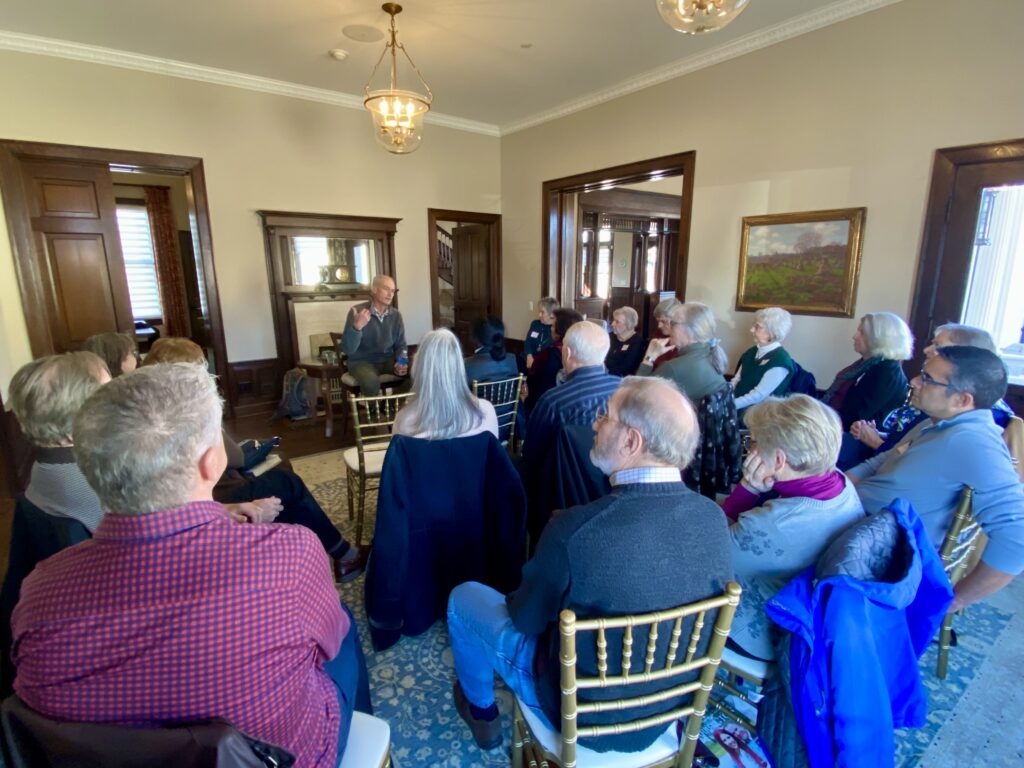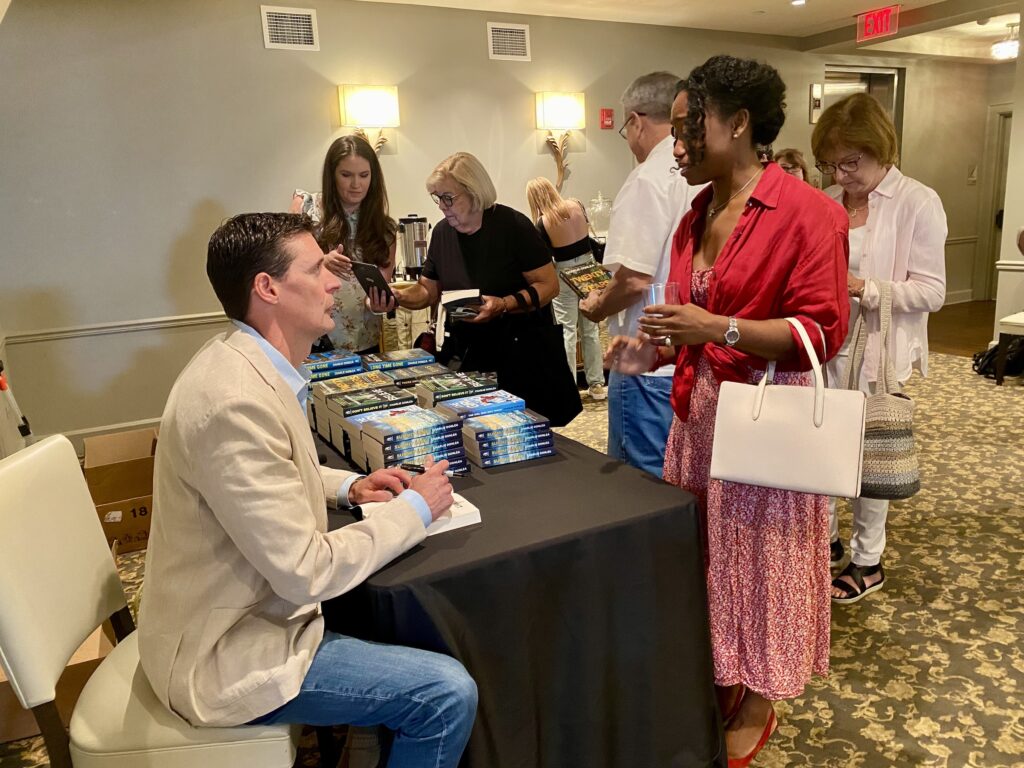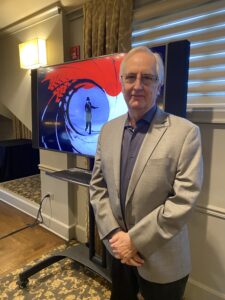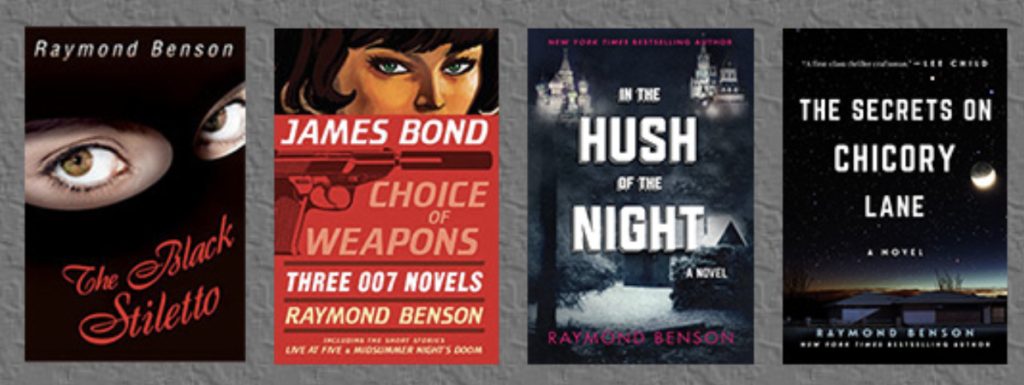What are the limits and potential of artificial intelligence (AI) for writers? Author, educator and Chicago Tribune columnist John Warner spiked his talk with straight answers to questions writers around the world are asking. He was at Barrington’s White House as part of BWW’s speaker program. What is AI? Warner describes it as a syntax generator, programmed to be good at inserting words based on probabilities. “It can’t think, reason or feel,” he says. “AI is not capable of judging accuracy or truth. It can’t form a world view or communicate with intention.”
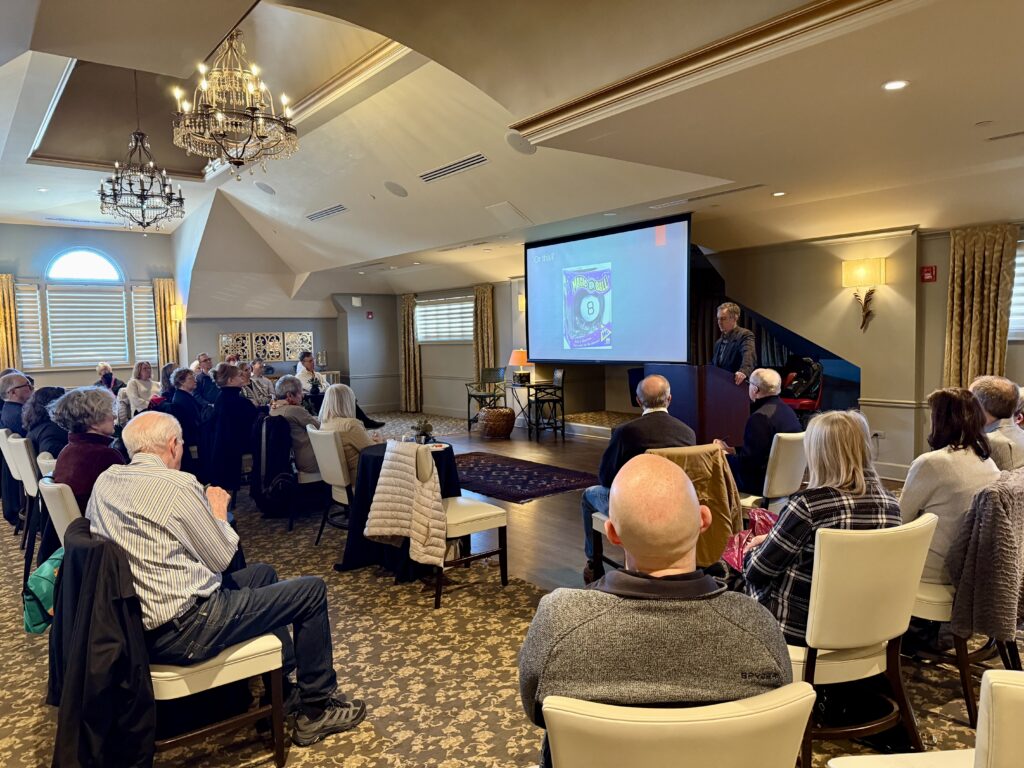
Author John Warner at Barrington White House
He gives BWW members assurances by saying, “Only humans write.” That’s because writers engage in a process based on artistry and wisdom, not algorithms. “Writing is thinking. It’s an idea, not a sentence,” he says. “Expressing and exploring an idea requires feeling and experiencing the world. Thinking is what shapes values and constructs a world view.”
AI can help writers with research, editing, word choice, location descriptions, and more when it’s used as a tool, not a replacement for a writer’s work. Learning how to prompt AI models with specific commands can be a real asset to writers.
Warner sees more advantages of being a human writer or having a writer in the room. Humans are endowed with “sensory capacity, experiences, memory, reflection and meta cognition that assesses meaning and importance.”
Giving Way to Choice
Recent shifts in literacy towards videos, TikTok and Substack allow people to share their passions directly with an audience. When algorithms direct the person to the next content, it’s infiltrating a person’s choice to determine what’s next for themselves. This is something to be aware of. He warns, “Life under algorithms divorces ourselves from our own tastes.”
A trend in traditional media is banking on only what sells. Warner encourages writers to prioritize their unique intelligence, individual interests, tastes, and experiences. “Process over product. Trust yourself,” he says.
More interesting ideas to ponder during his talk include these:
“Possessing volumes of data is not expertise.”
“We have agency. We can resist implementing something we didn’t ask for.”
“AI is like a coach who knows the score, but didn’t watch the game.”
BWW member Ed Plum describes the Warner program this way: “One of the most engaging and encouraging programs of BWW. The session laid out the limitations and possibilities of AI. I found the afternoon affirming, thought provoking, and left me determined to finish my book by June.”
Editor Note: OpenAI CEO Sam Altman recently released a story online written by a newly trained AI model. He thinks it is a good example of creative writing. Many of the online comments criticize the piece as “elegant emptiness” and “poorly written”. The most interesting comment I read: “As soon as readers know it is written by AI, they disconnect emotionally.” I find this to be true. With machines, I feel manipulated. With another human, I feel empathy, connection, inspired. John Warner helped those in the audience understand why this is so.
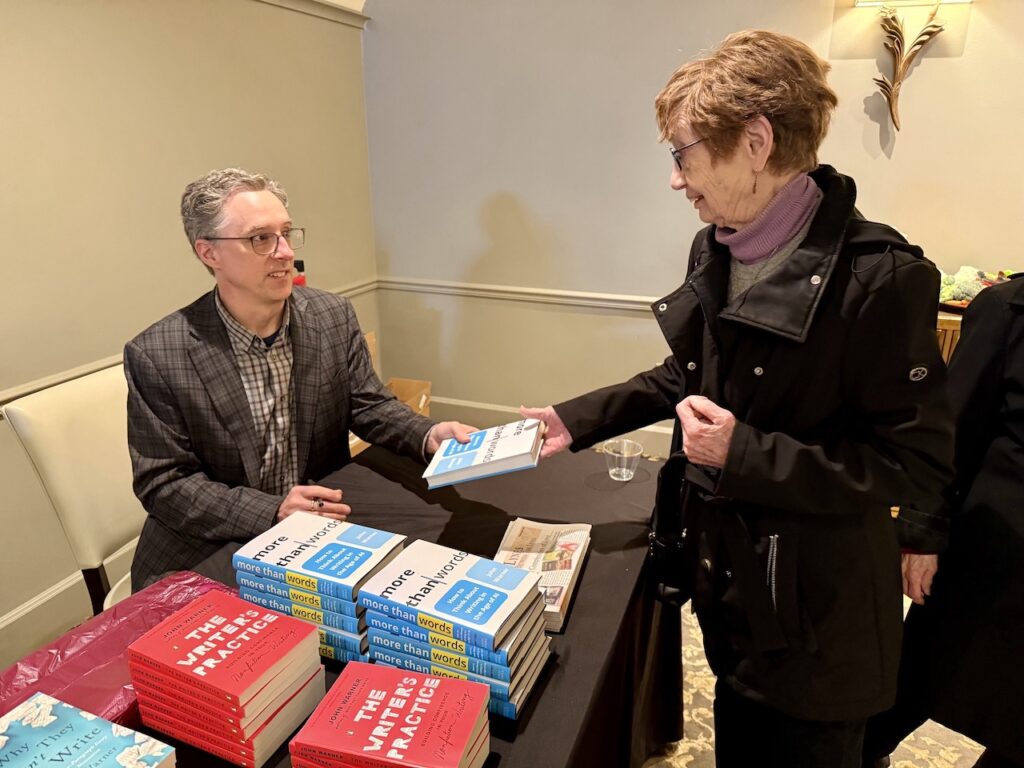
Book signing by John Warner at the end of his talk.

